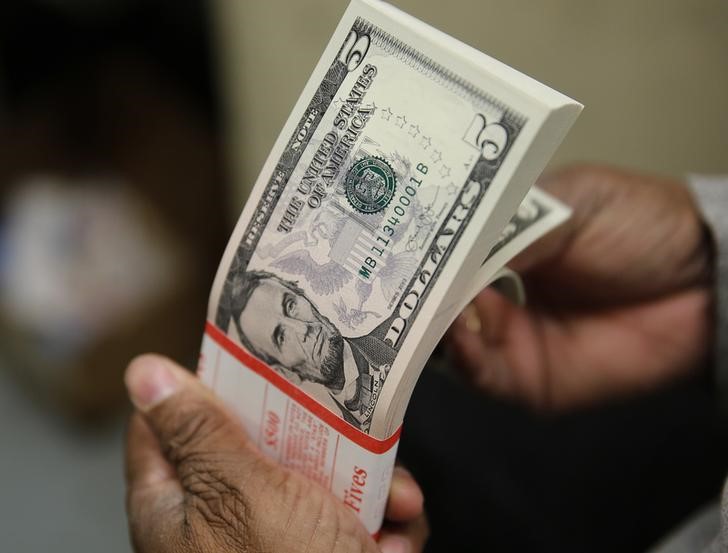Investing.com - The dollar rose against most of the other major currencies on Tuesday, recovering from falls in the previous session ahead of the start of the Federal Reserve’s two day policy setting meeting later in the day.
EUR/USD was down 0.41% to 1.1043 from Monday’s two-week highs of 1.1128.
The dollar regained ground as investors awaited Wednesday’s Fed statement to see if policymakers will give any indication on the timing of an initial rate hike.
Fed Chair Janet Yellen has said the central bank could raise rates as soon as September if the economy continues to improve as expected.
The U.S. was to release figures on second quarter growth on Thursday, which were expected to show that the economy rebounded following a contraction in the first quarter following in unusually harsh winter.
The greenback was also boosted as an ongoing selloff in Chinese equity markets sapped demand for riskier assets.
Stocks in Shanghai posted their largest one-day decline in eight years on Monday and continued to fall on Tuesday, despite expectations for more government support.
USD/JPY advanced 0.41% to 123.74, recovering from Monday’s lows of 123.00.
The U.S. dollar index, which measures the greenback’s strength against a trade-weighted basket of six major currencies, was up 0.31% to 96.94 from Monday’s two week lows of 96.28.
The dollar was higher against the Swiss franc, with USD/CHF up 0.15% to 0.9641, but was lower against the pound after data showed that U.K. economic growth accelerated in the second quarter.
Official data showed that the U.K. economy expanded by 0.7% in the three months to June, up from 0.4% in the first three months of this year.
On a year-over-year basis, gross domestic product grew 2.6%, slowing from 2.9% in the first quarter.
GBP/USD was up 0.25% to 1.5598 after falling to lows of 1.5529 ahead of the data.
The commodity linked currencies moved higher, with AUD/USD rising 0.63% to 0.7313, off Tuesday’s six year lows, while NZD/USD added 0.89% to trade at 0.6662. USD/CAD dipped 0.15% to 1.3019.
Volatility in Chinese equity markets has roiled the Aussie, because of the country’s strong trade links to China.
